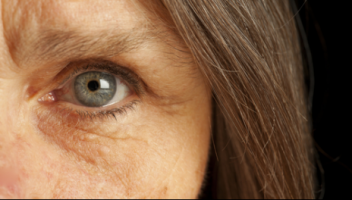- Home
- Editorial
- News
- Practice Guidelines
- Anesthesiology Guidelines
- Cancer Guidelines
- Cardiac Sciences Guidelines
- Critical Care Guidelines
- Dentistry Guidelines
- Dermatology Guidelines
- Diabetes and Endo Guidelines
- Diagnostics Guidelines
- ENT Guidelines
- Featured Practice Guidelines
- Gastroenterology Guidelines
- Geriatrics Guidelines
- Medicine Guidelines
- Nephrology Guidelines
- Neurosciences Guidelines
- Obs and Gynae Guidelines
- Ophthalmology Guidelines
- Orthopaedics Guidelines
- Paediatrics Guidelines
- Psychiatry Guidelines
- Pulmonology Guidelines
- Radiology Guidelines
- Surgery Guidelines
- Urology Guidelines
Are You at Risk for Macular Degeneration?

Many people accept deteriorating eyesight as an inevitable part of getting older, but blurry or distorted vision – such as when straight lines appear wavy – could be signs of age-related macular degeneration.
The condition is the most common cause of severe vision loss in people age 50 and older in developed countries. It occurs when waste products build up underneath the retina, which prevents cells in the retina from getting the nutrition they need. As a result, the retinal cells degenerate and eventually die, and abnormal blood vessels may grow underneath the retina.
The retina is the sensory tissue that lines the inner surface of the back of the eyeball. It converts light rays into impulses that travel through the optic nerve to our brain, where they are interpreted as the images we see.
“The symptoms of age-related macular degeneration develop as people get older, and many times people think the symptoms are due to a cataract or are an inevitable part of aging, so they don’t go to get a dilated eye examination,” said Dr Ingrid U Scott, the Jack and Nancy Turner Professor of Ophthalmology and professor of public health sciences at Penn State College of Medicine, and a vitreoretinal specialist at Penn State Eye Center.
The condition typically begins gradually and is a result of aging and cumulative exposure to risk factors such as cigarette smoking, sunlight and dietary factors.
Genetics also play a role in who develops macular degeneration. Caucasians are at a higher risk for developing it than African-Americans, as may be individuals with elevated blood pressure or cholesterol.
As the nation’s population ages, Scott said the prevalence of the condition is expected to increase. About 1.7 million people age 40 and older have been estimated to have the disease.
There are two forms of age-related macular degeneration – the dry form, which is responsible for about 80 percent of cases, and the wet form, which is less common but responsible for nearly 90 percent of severe vision loss due to the disease.
While there is no medical treatment for the dry form of the disease, doctors may recommend an antioxidant vitamin and mineral supplement, as well as lifestyle modifications to try to slow its progression. A series of injections of medication into the eye can result in some vision improvement for many individuals with the wet form of the disease.
Because the condition is diagnosed through a dilated retinal exam, Scott said it’s important for people in their 50s and older to get annual dilated eye examinations. “Initially, people may be unaware of symptoms of the disease, especially if the symptoms are present in only one eye, so people may not even be aware that they have the disease,” she said.
It is possible to lower your risk, though. A healthy lifestyle that includes regular exercise and a diet rich in antioxidants can help to decrease the risk of age-related macular degeneration, as can smoking cessation and controlling cholesterol and high blood pressure. Limiting exposure to the sun’s harmful rays can also help.

Disclaimer: This site is primarily intended for healthcare professionals. Any content/information on this website does not replace the advice of medical and/or health professionals and should not be construed as medical/diagnostic advice/endorsement or prescription. Use of this site is subject to our terms of use, privacy policy, advertisement policy. © 2020 Minerva Medical Treatment Pvt Ltd